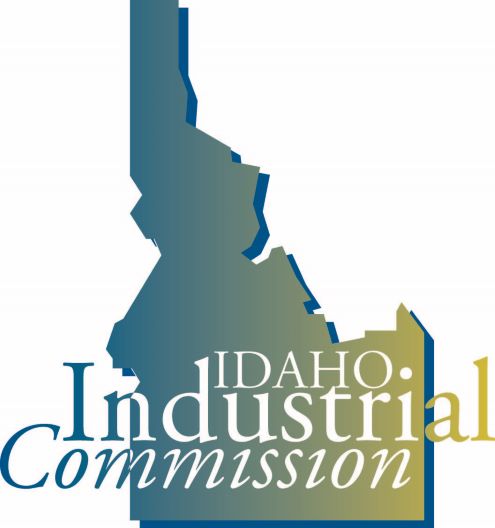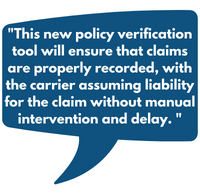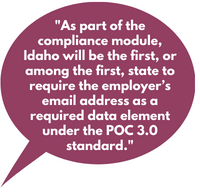Idaho Industrial Commission
IAIABC: Please provide a description of your organization.
George Gutierrez, Director, Idaho Industrial Commission: Since 1917, the Idaho Industrial Commission has been responsible for the administration of the Workers’ Compensation laws of the State. In 1978 these duties expanded to include the provision of rehabilitation services to assist injured workers in a return to gainful activity. The Industrial Commission also administers the Idaho Crime Victims Protection Program, which pays benefits to the innocent victims of crimes.
These services are provided at the Commission’s administrative office in Boise and ten additional field offices throughout Idaho. The Industrial Commission employs 133 employees statewide.

IAIABC: How does your organization serve the workers’ compensation industry?
GG: As a state agency, the Industrial Commission is responsible for the following:
- Regulating workers’ compensation activities in Idaho, including companies licensed to issue workers’ compensation policies.
- Ensuring that employers have workers’ compensation coverage as required by law.
- Adjudication of disputed cases.
- Assisting injured workers by supporting their medical recovery while facilitating a timely return to employment that is as close as possible to the worker’s pre-injury status and wage.
IAIABC: What do you see as some of the major challenges the industry is facing, and how can we as a community address them?
GG: When the Commission mandated EDI Claims Release 3.0 filing five years ago, we recognized the difficulty in matching the incoming FROI record with coverage. While the FROI reports provide the mandatory data elements, they are often incorrect or incomplete. As a result, they cannot be programmatically matched to a policy and therefore require manual processing by our claims staff. This volume of manual processing is not sustainable and diverts our resources from where they are needed; we knew we needed to find a better way.
As we considered the benefits of migrating to Release 3.1, we saw an opportunity to introduce a significant yet necessary change. We worked with our vendor on creating a policy verification tool, which has so far been successful in a UAT environment. This process allows our vendor to verify coverage with our POC database by matching only two data elements before running routine edits. We are continuing to communicate this significant change and proactively educating our trading partners to minimize the risk of rejected transactions.
This new policy verification tool will ensure that claims are properly recorded, with the carrier assuming liability for the claim without manual intervention and delay. Total claims liabilities are the primary driver for determining whether the securities held on deposit by the Commission are appropriate to cover the most severe liabilities. Any improper assignment may interfere with our ability to capture an accurate reflection of that liability. As a result of this automated verification process, the industry will appreciate a significant reduction in the number of inquiries made by Commission staff to resolve these discrepancies.
IAIABC: Are there any projects/programs/initatives going on at your organization that you are particularly excited or enthusiastic about?
GG: In 2021, the Commission launched an agency-wide modernization project to replace end-of-life business systems. The new system (IRIS) will operate in a Microsoft Dynamics 365 environment, and will, where possible, rely on off-the-shelf software. IRIS will replace paper-dependent administrative processes with digital solutions that emphasize customer service, optimize data management, and foster workflow efficiency, while additionally providing robust data analytics to evaluate internal performance and increase customer service.
 IRIS has progressed significantly through the past several months as it nears the rollout of the first element of the new software – the Employer Compliance Department business application, which is scheduled to go live on December 6, 2022. As part of the compliance module, Idaho will be the first, or among the first, state to require the employer’s email address as a required data element under the POC 3.0 standard. The need for this data element became increasingly apparent during COVID. It became more challenging to communicate with employers using the standard mailing process. As more and more businesses shifted to telecommuting operations, the Commission received increased feedback that employers were not receiving our notifications regarding specific compliance issues. Many often stated they would prefer to receive communication via email because they were working from home, thus paving the way for discussion with IAIABC, NCCI, carriers, and other state WC agencies to make the email address mandatory. IRIS will offer a number of features that will benefit external stakeholders. The user portal will streamline our document exchange, records requests, workers’ compensation claims information submissions, and constituents’ communication with agency staff.
IRIS has progressed significantly through the past several months as it nears the rollout of the first element of the new software – the Employer Compliance Department business application, which is scheduled to go live on December 6, 2022. As part of the compliance module, Idaho will be the first, or among the first, state to require the employer’s email address as a required data element under the POC 3.0 standard. The need for this data element became increasingly apparent during COVID. It became more challenging to communicate with employers using the standard mailing process. As more and more businesses shifted to telecommuting operations, the Commission received increased feedback that employers were not receiving our notifications regarding specific compliance issues. Many often stated they would prefer to receive communication via email because they were working from home, thus paving the way for discussion with IAIABC, NCCI, carriers, and other state WC agencies to make the email address mandatory. IRIS will offer a number of features that will benefit external stakeholders. The user portal will streamline our document exchange, records requests, workers’ compensation claims information submissions, and constituents’ communication with agency staff.

